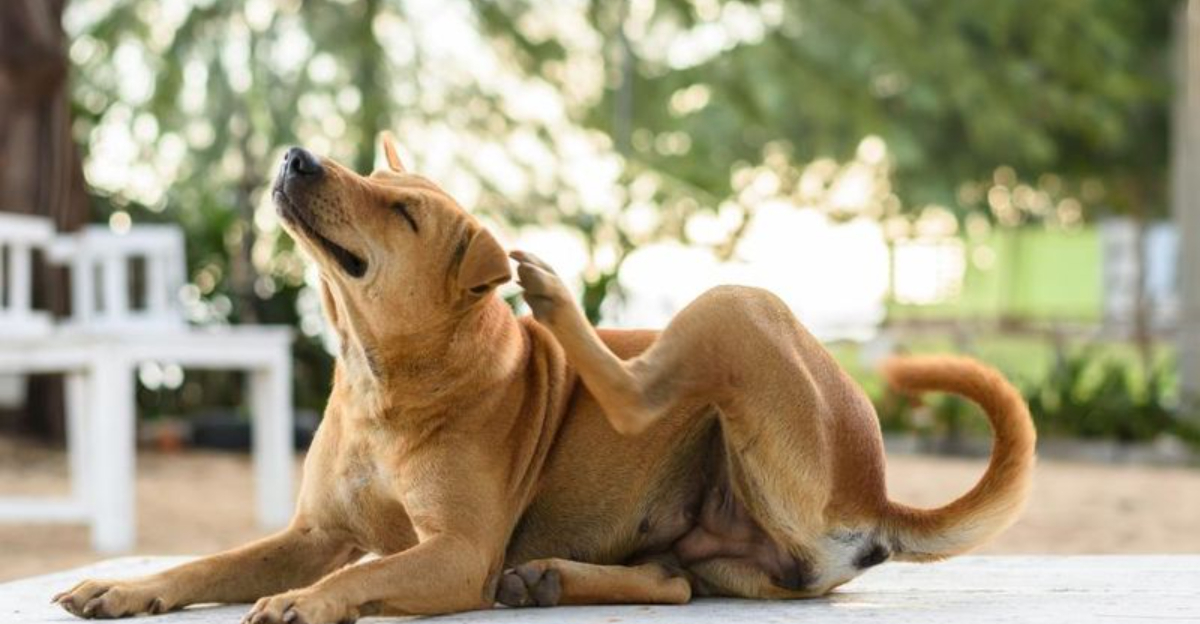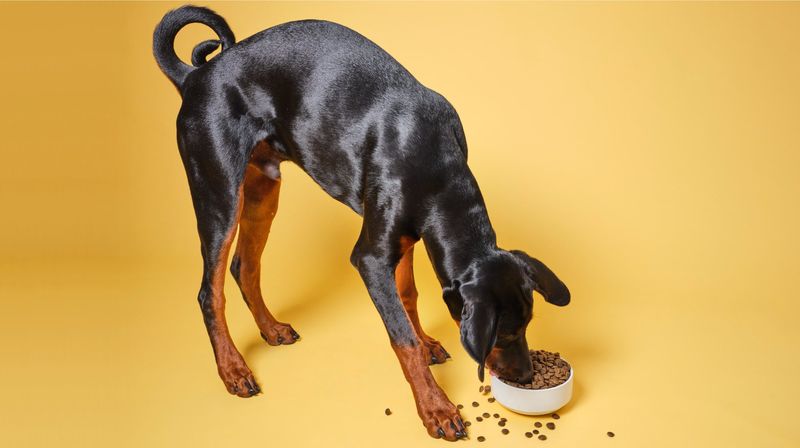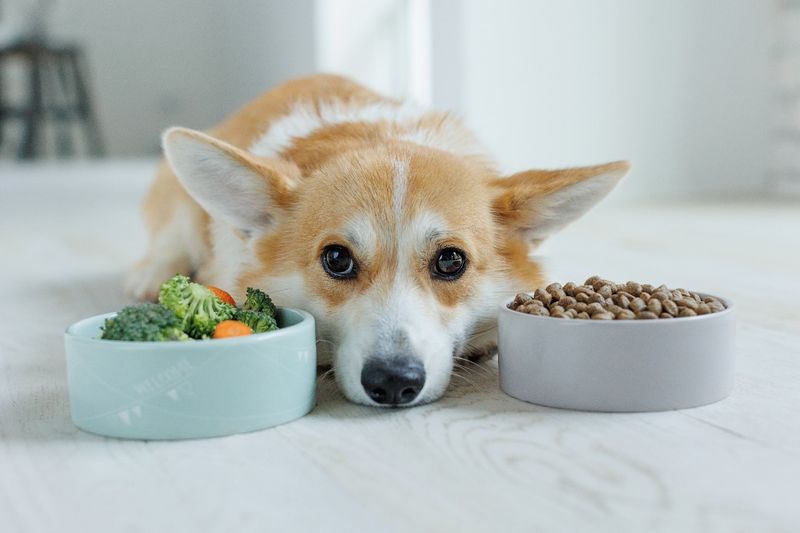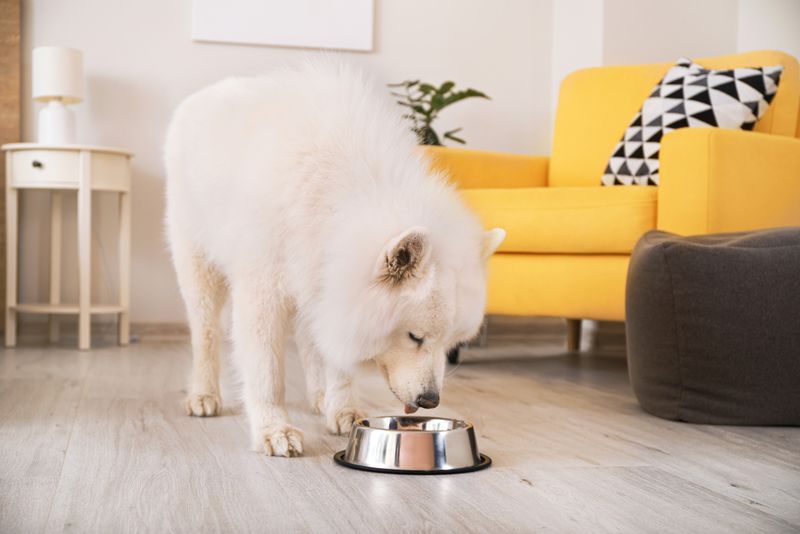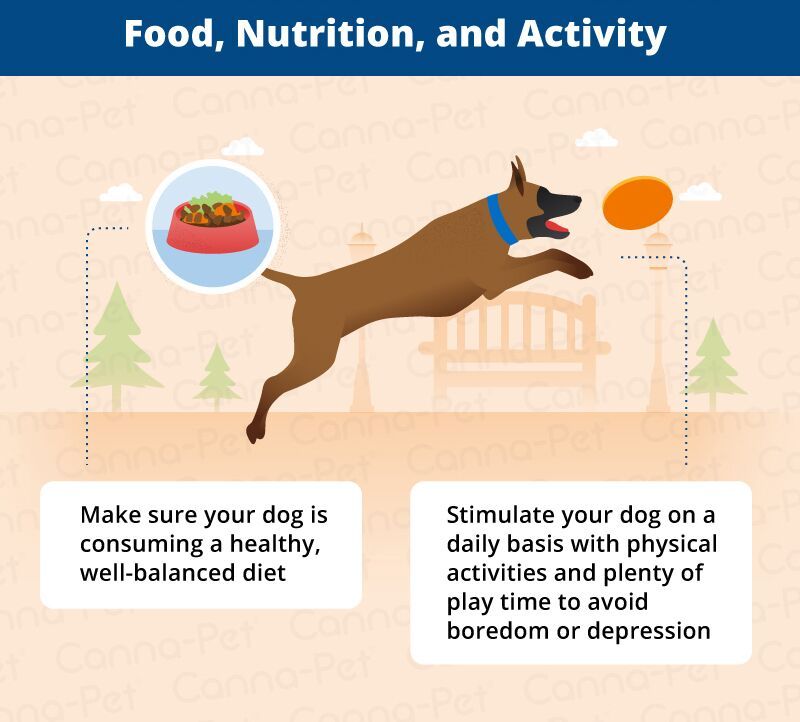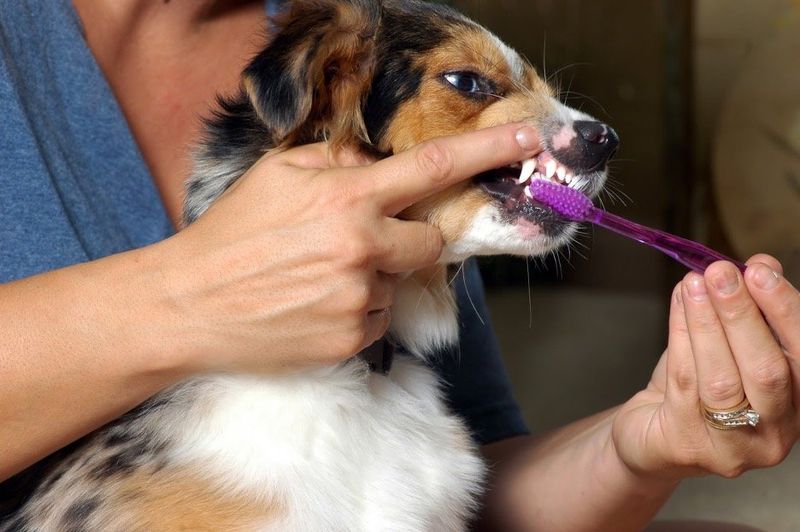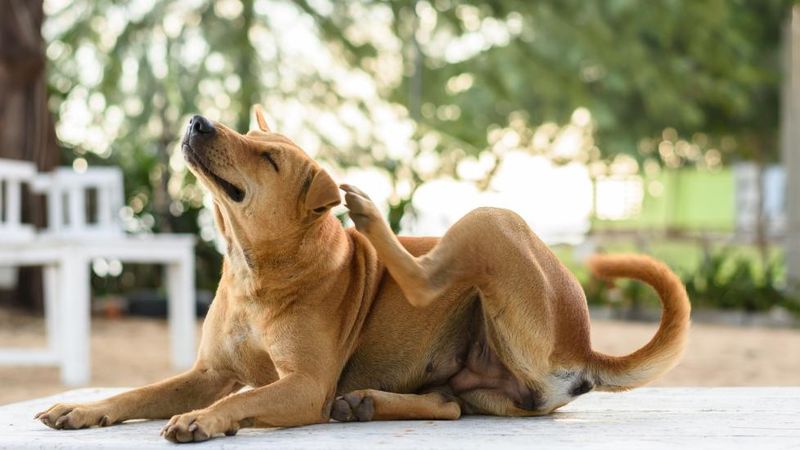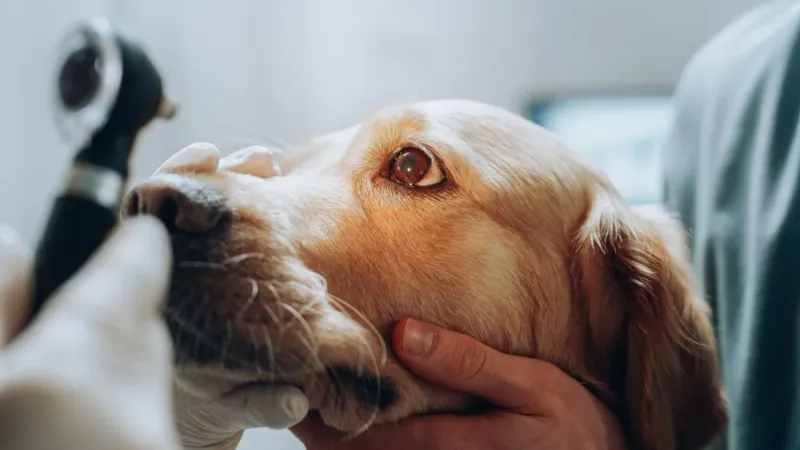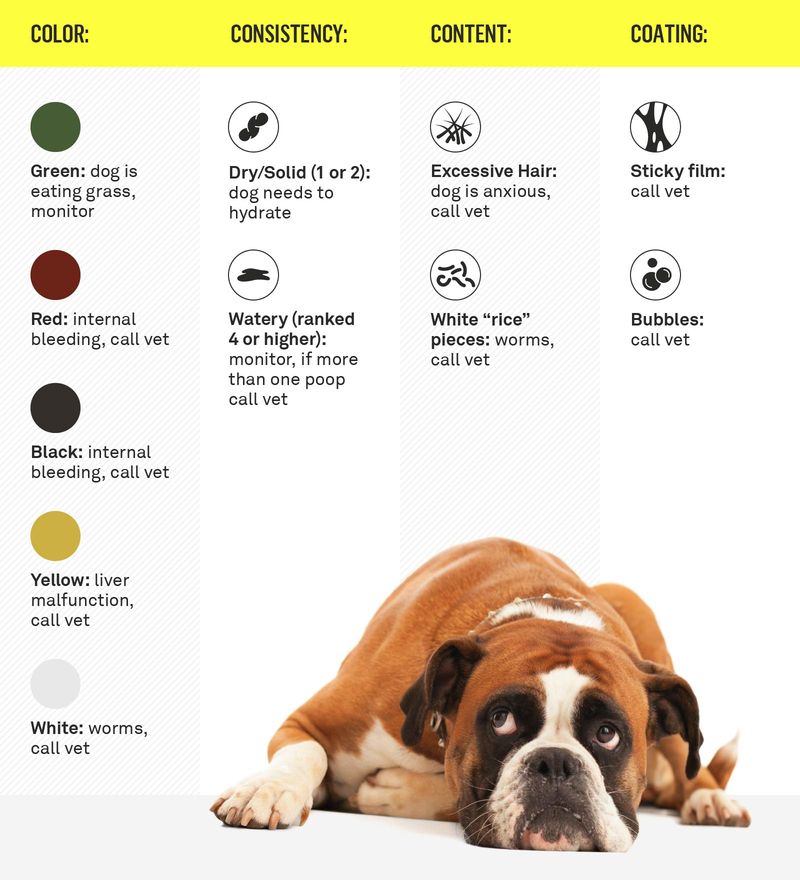Recognizing the signs that your dog needs a new diet is crucial for maintaining their health and happiness. A pet nutritionist can provide valuable insights into what might be going wrong with their current dietary plan. Here are nine signs to watch out for, ensuring your furry friend stays in the best shape possible.
Lackluster Coat
Has your dog’s coat lost its shine? A dull, flaky coat could mean their diet lacks essential fatty acids or vitamins. This can lead to itchy skin and increased shedding. Consider foods rich in omega-3 and omega-6 fatty acids to restore that glossy shine. Imagine your pet looking in the mirror, puzzled by its newfound dullness. Shifting to a nutrient-rich diet can make a world of difference, rejuvenating their coat to its former glory. Consult your vet for diet adjustments and watch your furry friend strut its silky fur once more, like a canine model on a runway.
Frequent Digestive Issues
Tummy troubles can be as unpleasant for dogs as they are for humans. Frequent vomiting, diarrhea, or gas might indicate a dietary mismatch. Have you tried changing their food but to no avail? It might be time to consult a nutritionist. Picture your pup sitting beside uneaten bowls of food, confused and uncomfortable. An expert can guide you through finding a diet that soothes their sensitive stomach. Explore hypoallergenic options or limited ingredient diets that can aid digestion, turning mealtime into a joyful experience for your furry companion.
Weight Changes
Rapid weight loss or gain can signal diet problems. If your dog seems to be gaining pounds without increased food intake, it might be time to reassess their diet. On the other hand, unexplained weight loss can be alarming. Imagine a dog standing on a scale, scratching its head in confusion. Adjusting calories or nutrient ratios can address these weight fluctuations. Consult a professional to tailor a meal plan that matches your dog’s specific needs, ensuring they maintain a healthy weight and vibrant energy levels.
Lethargy and Low Energy
Does your once-energetic pup now prefer lounging over playing fetch? Lethargy and low energy might be a result of inadequate nutrition. Visualize your dog sprawled on the couch, barely lifting its head to greet you. Feeding them a balanced diet with the right mix of proteins, fats, and carbohydrates can rejuvenate their spirit. Incorporate fresh, whole foods or quality commercial diets designed for active dogs. A quick consult with a pet nutritionist can unravel the mystery behind your dog’s sudden lethargy and breathe life back into their playtime antics.
Bad Breath
We’ve all experienced puppy kisses that make us cringe. Bad breath could be more than just a dental issue; it might signal dietary problems. Imagine your dog surrounded by little breath clouds, embarrassed by the smell. Incorporating dental-friendly diets or adding raw bones can help. Consider foods with natural breath fresheners like parsley or mint. Regular check-ups and a tailored diet might be the key to transforming those unpleasant odors into fresh, welcoming puppy sniffs. Don’t let bad breath come between you and your furry friend’s loving gestures.
Persistent Itching
Constant itching can drive your dog (and you) crazy. This might be linked to dietary allergies or intolerances. Visualize your pup scratching away, puzzled by the persistent itch. An elimination diet or allergen-free foods can provide relief. Work with a nutritionist to determine the trigger, whether it’s protein, grain, or another ingredient. Adjusting their diet can alleviate the itch, allowing your furry friend to enjoy peaceful, itch-free days. Explore the world of hypoallergenic dog foods, bringing back comfort and happiness to your pet’s life.
Dull Eyes
Your dog’s eyes might be the window to their dietary needs. Dull, lackluster eyes can indicate nutritional deficiencies. Imagine your dog staring blankly at a beautiful sunset, missing its vibrant hues. Restoring their diet with antioxidants and essential vitamins can brighten those eyes. Consider foods rich in vitamins A and C to enhance their eye health. A nutritionist can help pinpoint deficiencies and suggest appropriate dietary adjustments. Witness the transformation as your dog’s eyes regain their sparkle, reflecting their internal well-being.
Inconsistent Stool
Stool consistency is a good indicator of your dog’s digestive health. If your furry friend frequently produces stools that vary in color or consistency, it might be time to evaluate their diet. Picture a dog staring at an array of different colored stools, head tilted in curiosity. Dietary changes, such as adding fiber or switching to a more digestible food, can stabilize their digestion. Consult a nutritionist to develop a diet that fosters consistent, healthy bowel movements, ensuring your dog feels comfortable and content.
